| 举行第14届南北关系专家讨论会 |
|---|
| 舆论分析科 , 2015-02-26 |
Change of North Korea – Gradual Approach vs. Overall Approach
- Prospect of the Change of North Korea and Preparation for Unification-
- Prospect of the Change of North Korea and Preparation for Unification-
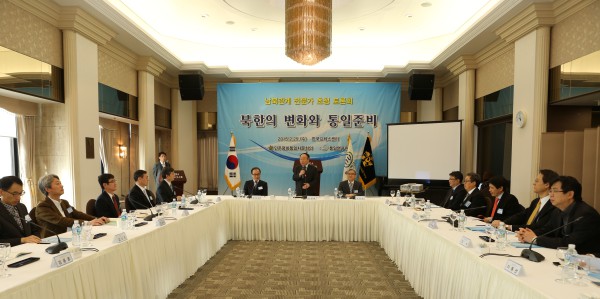
Event View
NUAC (Executive Vice-chairperson: Hyun Kyung-dae) and KINU (Korea Institute for National Unification; President: Jinwook Choi) jointly held the 14th Experts’ Discussion on Inter-Korean Relations on Feb. 15 at the Korea Press Center in Seoul, Korea to provide the opportunity to discuss inter-Korean relations in depth. The event was divided into 2 sessions under the subject of “Change of North Korea and Preparation for Unification,” and intensive discussion was held by all the attendants.
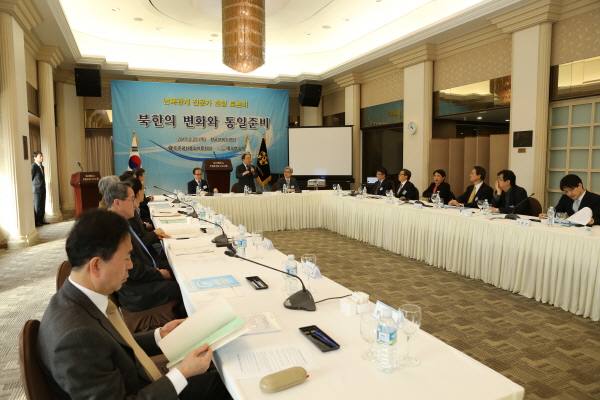
Welcome Speech
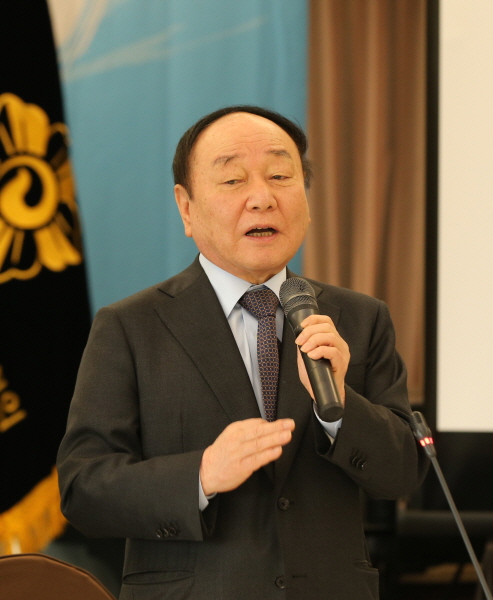 Welcome Speech: “Change of North Korea is essential to achieve peaceful unification of the Korean peninsula based on liberal democracy. What we should promote continuously is improving human rights in North Korea,” Hyun said in his welcome speech.
Welcome Speech: “Change of North Korea is essential to achieve peaceful unification of the Korean peninsula based on liberal democracy. What we should promote continuously is improving human rights in North Korea,” Hyun said in his welcome speech.
He noted that lots of discussion were held on national unification so far, but we cannot see its end, showing that achieving national unification can never be an easy task. Nevertheless, unification is the absolute subject of all Koreans living in this era, he stressed.
First Session: Prospect of gradual change and preparation for unification
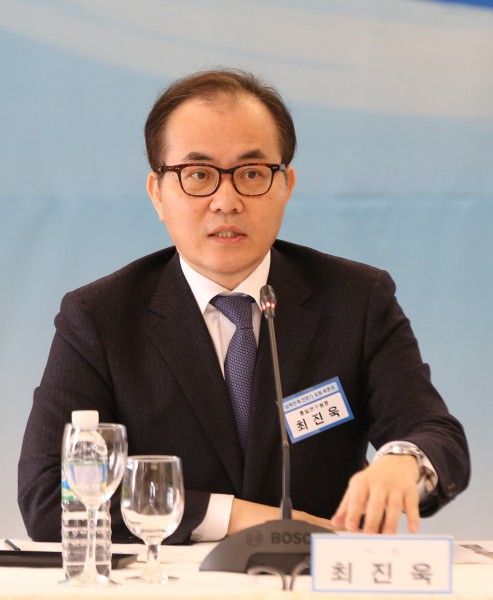
Presided over by: Jinwook Choi,
President of KINU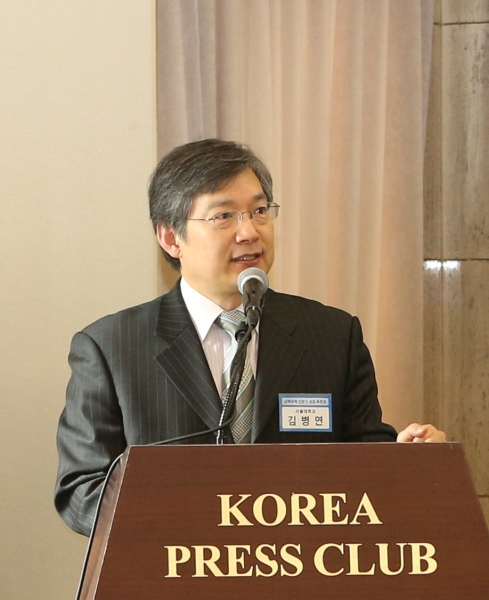
Subject presented by Prof.Kim Byungyun of Seoul National Univ...
The first session was presided over by Jinwook Choi, president of KINU, to present and discuss the subject of “Prospect of gradual change of North Korea and preparation for unification.”
Prof. Kim Byung-yun from the Department of Economics in Seoul National University focused on the gradual system shift of North Korea and economic integration between South and North. “If the North Korean regime would try to change its system voluntarily, it might try to shift to the capitalist economy system gradually, maintaining its socialist political system.” He explained.
And he added, “North Korea may systemize and promote markets and market activities that are now taking place among the planned organizations following the example of China but maintain the functions of its existing planned organizations to some extent; it would be possible for North Korea to keep the planned economy and market compatible with each other in its structure,” he explained.
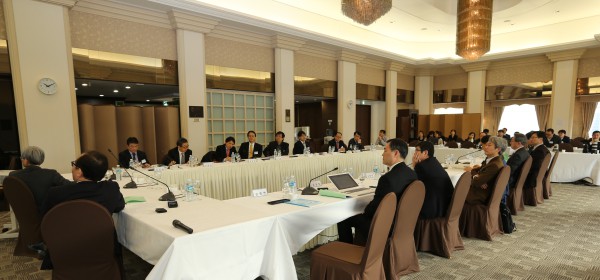
First Session, Presentation
Considering the aspect of leading the shift more efficiently when North Korea changes its system and the goal of inter-Korean relations is decided, South Korea needs to determine how to establish the relationship ultimately prior to system shift by North Korea as much as possible, Prof. Kim added.
Moreover, he emphasized that not only providing gradual unification strategy more efficiently, realistically, and in detail but also organizing it to correspond with the system shift of North Korea is a very critical political subject to be achieved. The economic integration of South and North should be combined organically with the stage of system shift by North Korea, but it should be done in a way that will facilitate the autogenic growth of the North Korean economy.
Second Session: Prospects of Overall Change of North Korea and Preparation for Unification
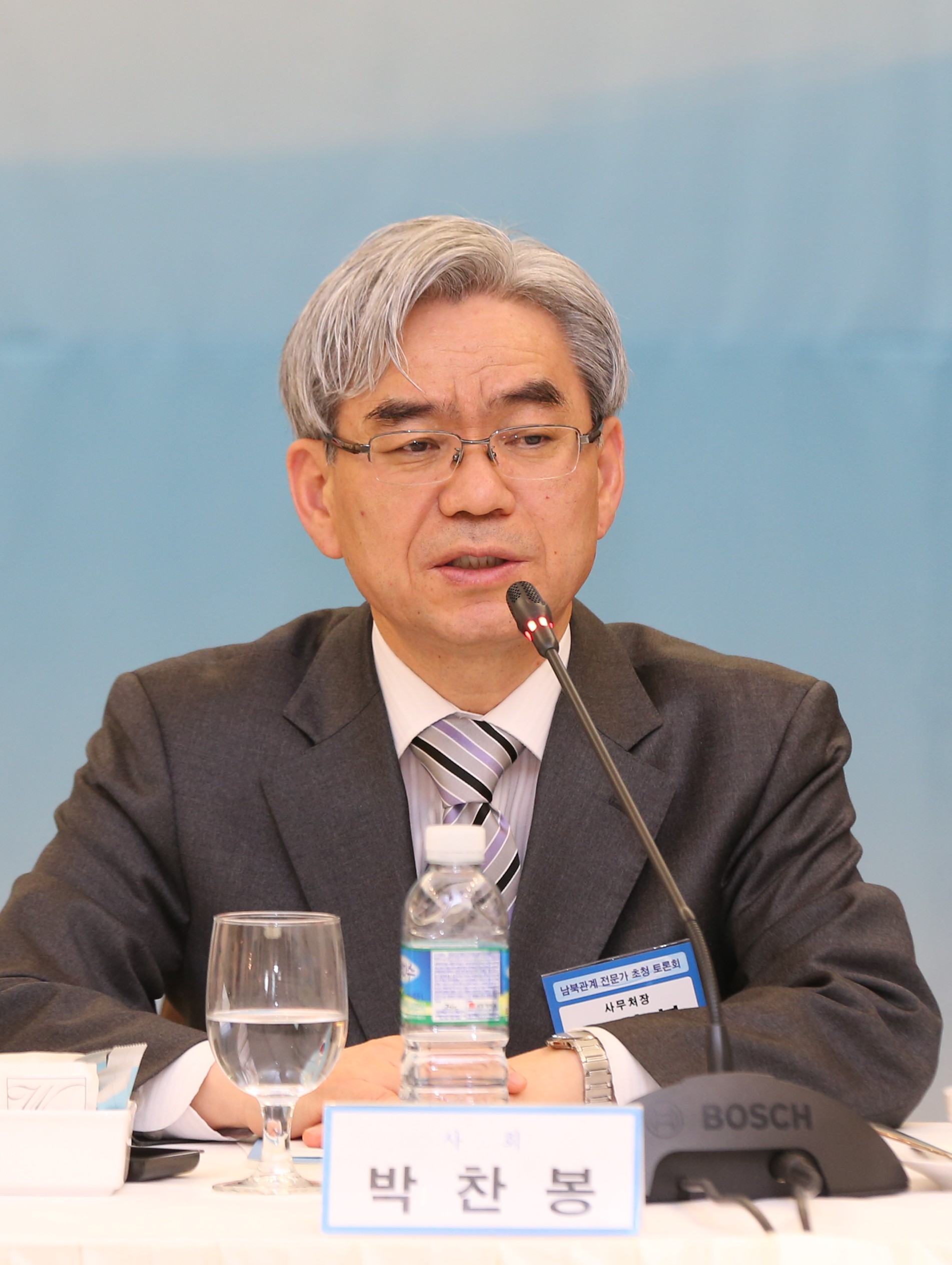
Presided over by: Park Chan-bong, Secretary General of NUAC
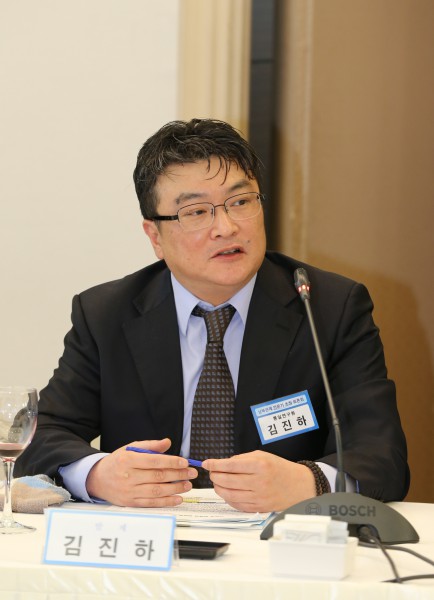
Subject presented by Kim Jin-ha,
Researcher
Park Chan-bong, Secretary General of NUAC, presided over the second session. “How North Korea should change and how we should prepare for unification should be discussed broadly in our society,” he stressed.
Kim Jin-ha, director of the International Strategy Research Center of KINU, presented the subject of the second session. According to him, the gradual change of North Korean systems and an agreeable unification process would be desirable, but the necessity of providing measures for exceptional situations like the overall change of North Korean systems remains very high.
“A fundamental way of preparing for the measures is stable control of the changes, minimization of the unification cost and sacrifice of the people, and systematic planning to promote the peaceful unification of the Korean peninsula,” he said.
He suggested a program to prepare for unification and a strategy to promote the renovation of policy, state, and economy by stage. He also raised the necessity of re-establishing the views on national unification in keeping with the era of multi-polarization and diversification as a foreign policy strategy.
Furthermore, he emphasized that the plan to cope with the gradual and overall change of North Korea should not be exclusive of but complementary to each other.
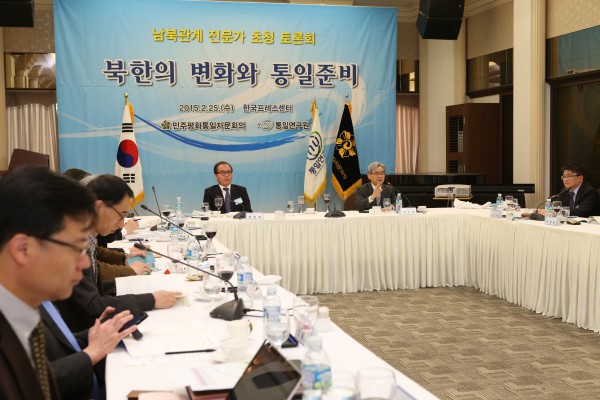
Second Session
The following issues were discussed after presenting the subject: 1) The width and speed of change of North Korea depend on the possibility of acceptance by North Korea, but overall and prompt change is desirable as much as possible; 2) North Korea should be the party to control its change; since the cooperation of South Korea and international societies is inevitable, North Korea should agree to abolish its nuclear weapons and improve human rights in order to establish the conditions for obtaining cooperation from South Korea and international societies; 3) Since the change of North Korea and preparation for unification are closely related, dialogue between the two Koreas is required to discuss the change of North Korea and preparation for unification.
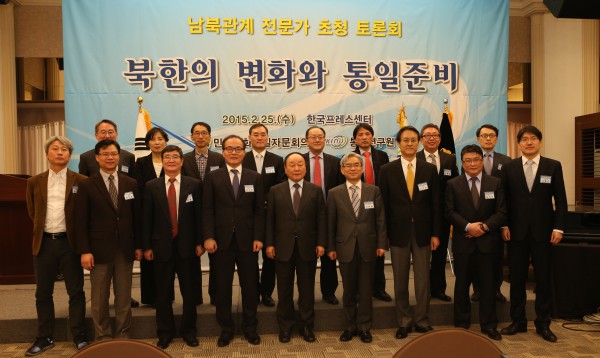
Attendants
A total of 18 experts in inter-Korean relations both from conservative and progressive groups had intense discussions.